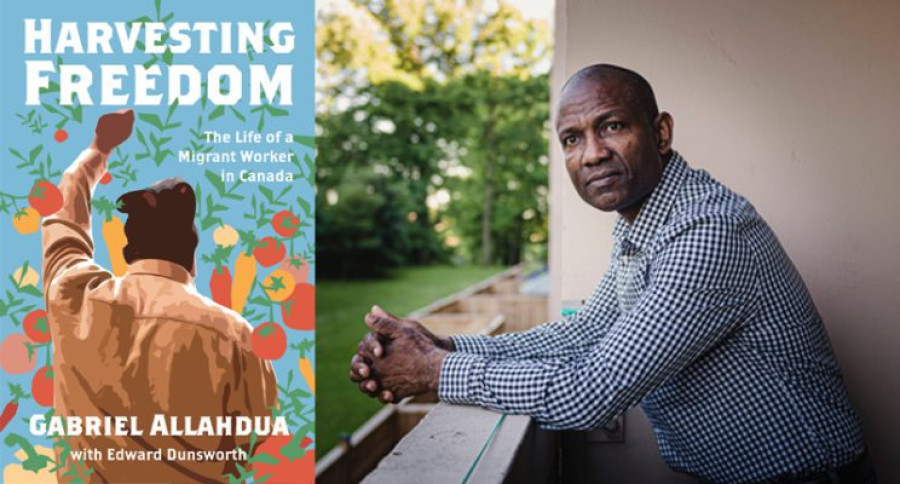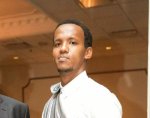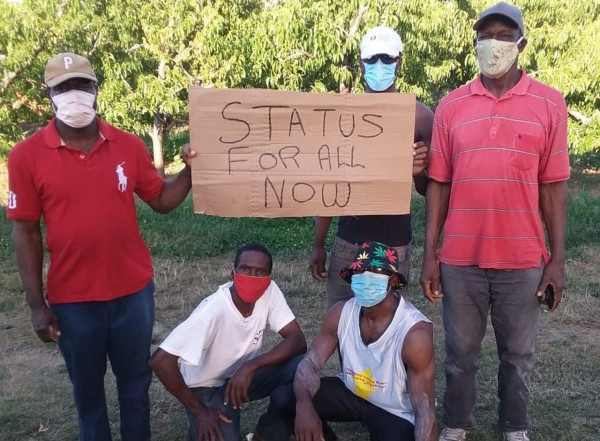Since food is necessary to live, Canada has a very powerful position on the world stage. With that power, Canada professes to defend human rights and diversity, yet the reality is more complicated. Through the thousands of greenhouses producing foods like tomatoes, strawberries and apples, Canadian agribusinesses behave like medieval lords more than modern farms. When they hire workers from abroad these corporations become landlords, employers and immigration officers to desperate and dispossessed workers.
Gabriel Allahdua was one of these workers. After his own farm was destroyed thanks to climate change and ecological damage he left his home in Saint Lucia to work in the Canadian farm program. But after seeing the exploitation of the system first hand he joined the activist movement and authored Harvesting Freedom, an account of his journey from student to migrant farm worker to activist. Talking to him about his journey left me with a real education on what Canada is to the world: a food dictator.
The agriculture industry in Canada is a huge moneymaker. The work done on farms alone represents $31.9 billion (or 1.6% of GDP). For context that is the exact percentage the government spends on research & development nationwide. The agribusinesses profiting from the industry are monopolistic, meaning only a few big businesses control the vast majority of the industry. This has happened over years of consolidation by huge corporations like Richardson International. Without challenge, these agribusinesses not only control migrants but even the supply of food.
“Canada is a big country and can provide food for everyone, but these businesses continue to keep supply low,” said Gabriel.
He is right, it is a common practice for businesses to dump food to increase profit. Canada is infamous for its dairy dumping, even in times of dire economic need. But it exists for other products as well. Dumping food keeps supply artificially low and drives up prices. Not only can Canada produce food for everyone, but we can also produce so much that it would be dirt cheap, so why do we not do that?
“In Canada, food is a commodity, not for eating but for profit." Gabriel says this from experience. In his years in Leamington, Ontario he witnessed racism, withheld wages, depression and death as large businesses failed to properly support and equip migrant workers for the dangerous work they do feeding the world. Forced to share one room with eight other migrants, or a single fridge with dozens of men, migrant workers are contracted to Canada by these businesses. Once they arrive, they are prohibited from switching employers, must live on their employers' land, and can only move according to their employers’ needs. Want to complain? Well while you file that complaint your employer can fire you and have you deported. In this sort of system there is little a migrant worker can do if they are treated unfairly. This system of unfreedom is modern-day serfdom.
Serfdom is the socio-economic status of unfree peasants under feudalism, a socio-economic system popular in Europe during the 10th to 15th century. Serfs were labourers who were bound to the land; they formed the lowest social class of the feudal society and labour landowners held property rights. In this society, serfs were given status tied to the land. A step above outright slavery serfs' status as people and citizens was determined by their work on the land.
As Gabriel details in his book, workers were often rated on their level of production, and if the managers did not like their production level or attitude then workers would be forced to leave the country. Mind you this is after the farm workers had to pay employers to travel to Canada, apply for the program and for room and board. Often workers were too poor and so were forced to take predatory loans to pay their employers for the right to work for them. That is why migrant workers are fighting for legal status in Canada.
According to Mr. Allahdua this would mean that migrants could live without fear of deportation. It also means they could look for other work and choose how to live their lives in Canada. Since his time as a migrant worker, Gabriel has gained status in Canada and continues to fight to give all migrants status, so that when they land in Canada they have the same rights as all formal immigrants. But the fight for status is raging between activists on one side, and the agribusinesses, with the government on the other.
“The government is not our friend. I wish I had learnt that as a child. Just because something is the law that does not mean it is right. Slavery was the law, and so was segregation. They (government) do not work for voters or citizens but the businesses that fund them.”
After years of dealing and working with the government, Gabriel has come to learn we cannot rely on those in power to change anything, so what stops him from leaving and giving up on his cause?
“Canada is a mixed bag. The system has a lot of injustice, but when I speak at universities I see the kids come up and say how they never knew this was going on, and they are more aware about the food they eat and how it is produced.”
It is a radical shift to go from an activism that looks to the government for help, to one that sees government as the problem. Building solidarity with allies and groups is part of his calculus to finally bring status for all.
Harvesting Freedom is an amazing read that gives context to the real issues. “I would love to have the book in every home in Canada, so people will know that Canada is part of the problem. Canadians like to deflect and point to the US, but at least the US acknowledges their issues and in fact, there are better records of these things there, Canada is silent.”
Silence does speak louder than words and the lack of honest discussion on the tragedy of Canadian agriculture is proof that the Great White North is running a modern-day food fiefdom built on migrant workers, who are mainly Black and Brown. In the eyes of Gabriel, the issue is very black and white, you either support freedom for migrants or you do not. Or in the words of rapper/poet Wasalu Muhammad Jaco:
“You can be Mr. Burns or Mr. Smithers, the tyrant or the slave, but nowhere in the middle.”
Gabriel currently gives talks on the plight of migrant workers while working with agriculture initiatives in West Toronto.

 By
By 






